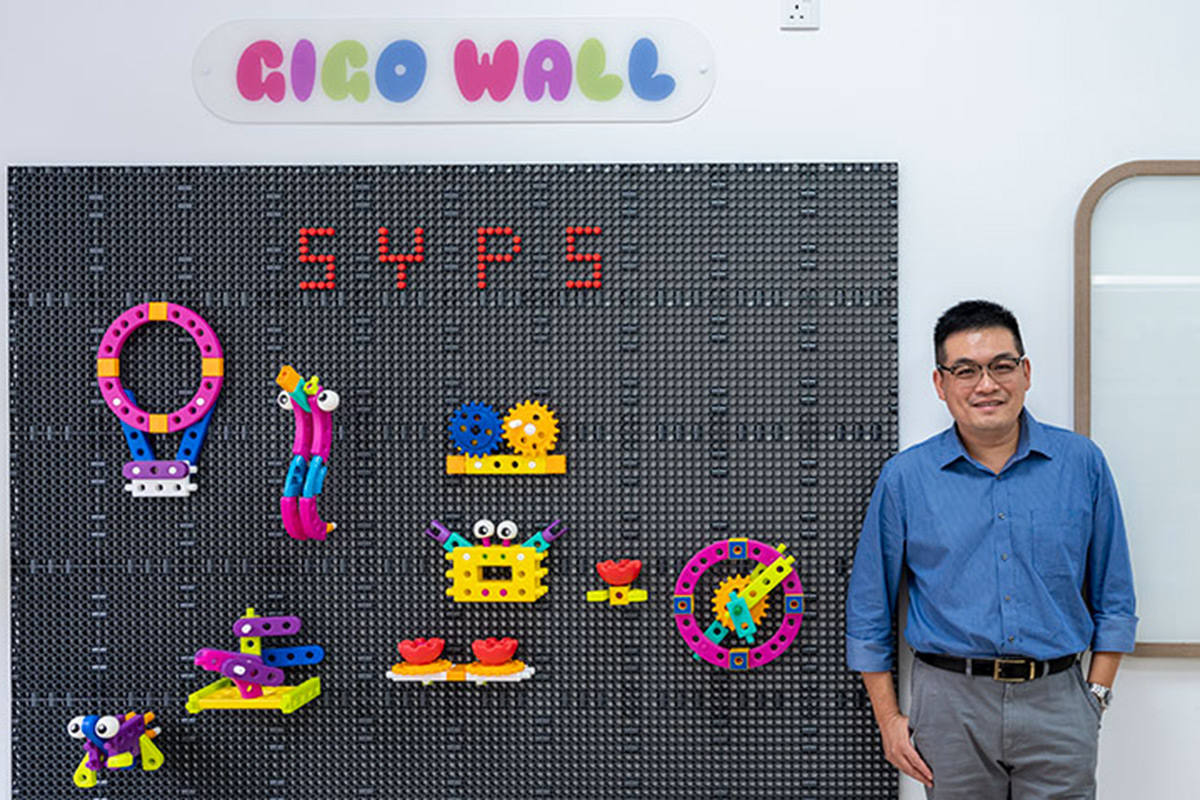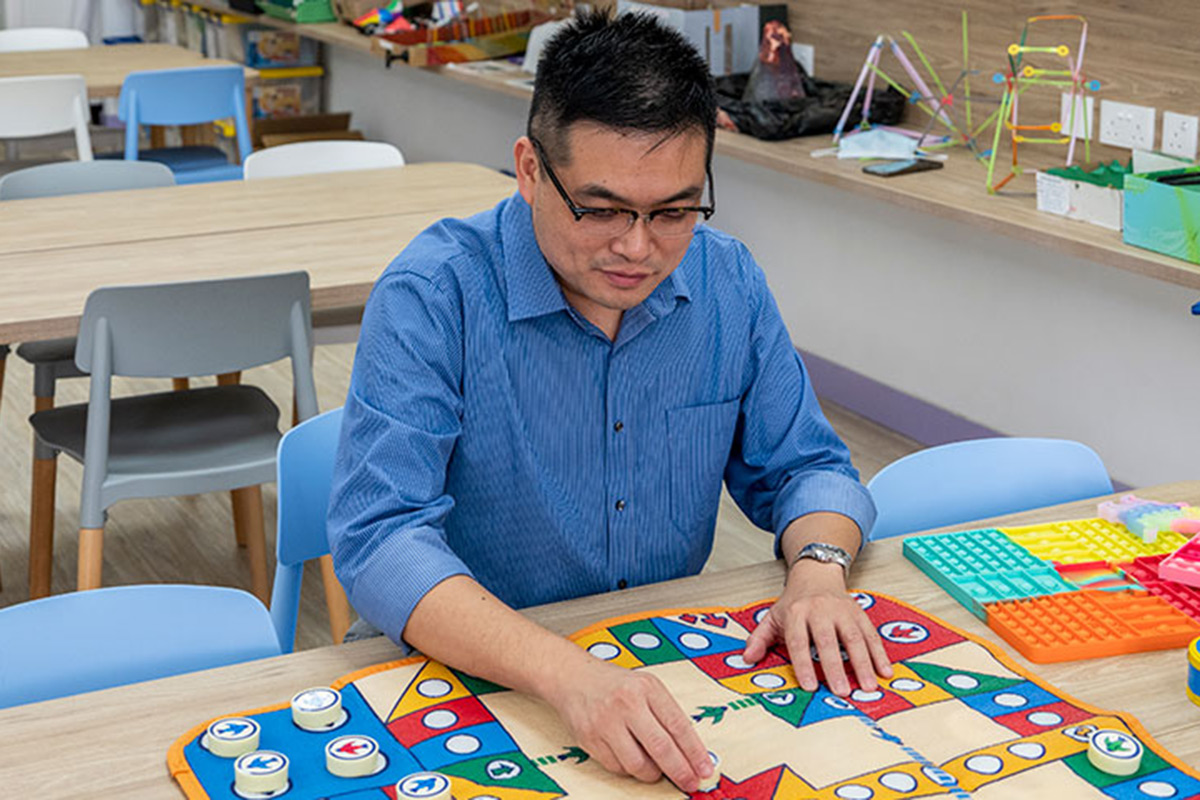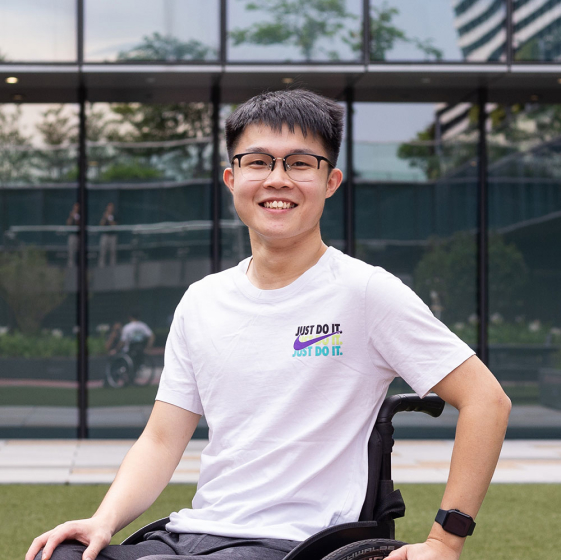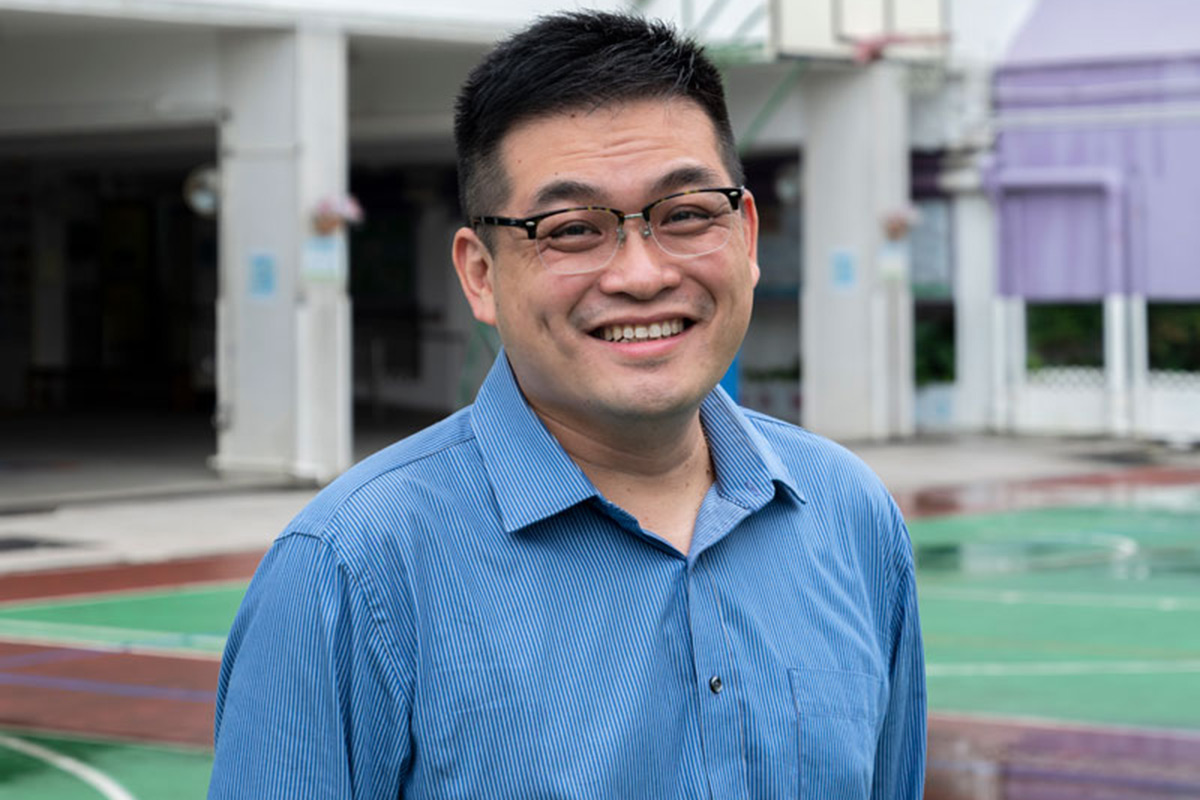Wu Tin-dak: “Eighty percent of teachers in the school did not know anything about autism, and teaching them was no easy task.”
Wu Tin-dak still remembers how his fellow teachers at HKTA Shun Yeung Primary School were at a loss about what to do the first time they met children with autism. That was back in the 2000s when they noticed an increasing number of students in the school were showing symptoms of autism spectrum disorder (ASD).
“The students tend to be more stubborn than others and they often like repetitive behaviour,” says Wu. “Eighty percent of teachers in the school did not know anything about autism, and teaching them was no easy task.” Today, he is the Special Educational Needs Co-ordinator in his school.
Over the past few years, Wu has taken part in a series of training sessions organised by JC A-Connect: Jockey Club Autism Support Network for school teachers. Through the training, he has gained a deeper understanding of ASD and developed teaching strategies for students with autism. He has also been sharing with his colleagues what he learned from the training. “All of us have learned more about autism. It is a spectrum with different categories and symptoms,” Wu says. “For instance, some ASD children may also suffer from ADHD (attention deficit hyperactivity disorder) and learning disabilities.”

ASD children often struggle with communication, which leaves them feeling lonely and alienated, as if they are alone on their own planet or star – hence their Chinese moniker, “the children of the stars”.
In response to the growing number of ASD cases observed in Hong Kong, The Hong Kong Jockey Club Charities Trust launched JC A-Connect to provide holistic support for ASD children studying in mainstream schools in 2015. JC A-Connect enhances support for children with ASD at homes, schools and in the community through an innovative service model enabled by cross-sectoral collaboration. The project also offers training to teachers and service providers to enhance the sustainable development of ASD support services.
JC A-Connect has introduced Wu to a host of alternative teaching strategies. “Relying solely on verbal communication may not be the best for these children. They tend to understand things and communicate better through visuals,” says Wu.

Besides providing training to teachers, JC A-Connect has worked with five NGO partners to deliver one-stop support services for parents in community centres across the city. Given the remarkable achievements of the project, the Education Bureau adopted the project’s school-based support service model as a regular service to support more ASD students from the 2021/22 school year.
Wu is glad to see different social sectors have come together to support children with ASD. “This project has been of immense help,” he says. “Most of us didn’t know much about ASD before, but JC A-Connect has taught us more about it. It has also given us teaching strategies that cater to these children. We have seen significant improvement in students’ education as well as in school management.”
This story was originally published on The Hong Kong Jockey Club's "With You. Then. Now. Always." website.

Lighting up the lives of "hard-to-reach" elderly

Fostering systemic transformation: start with individuals


